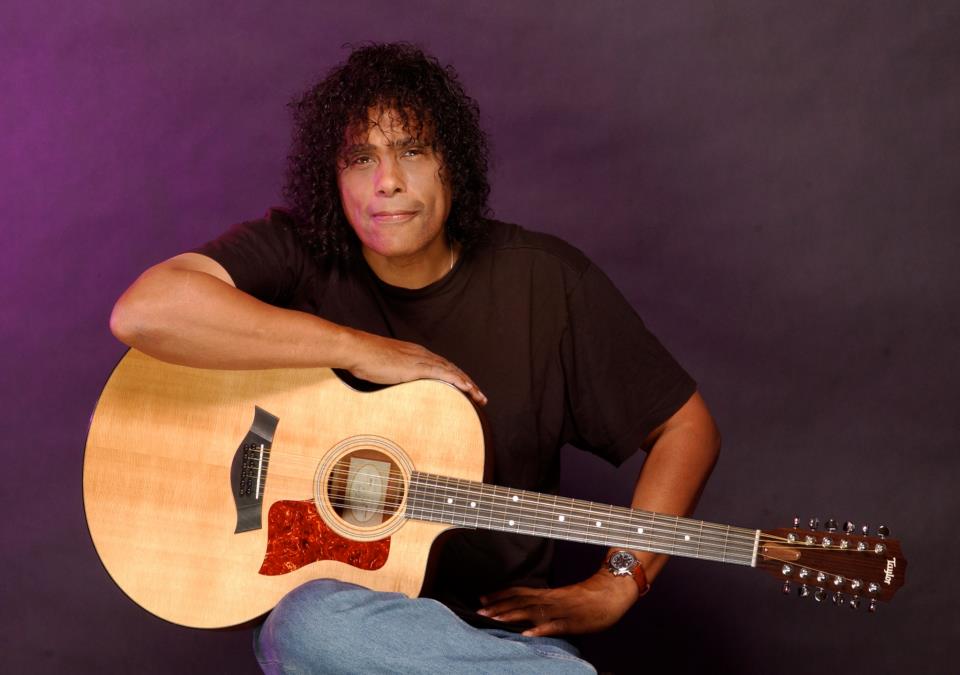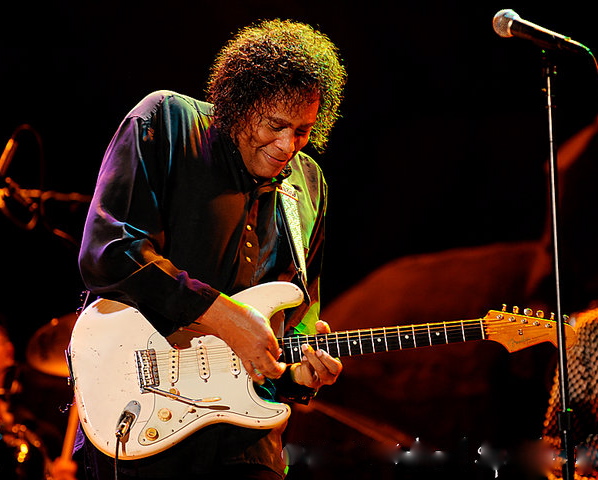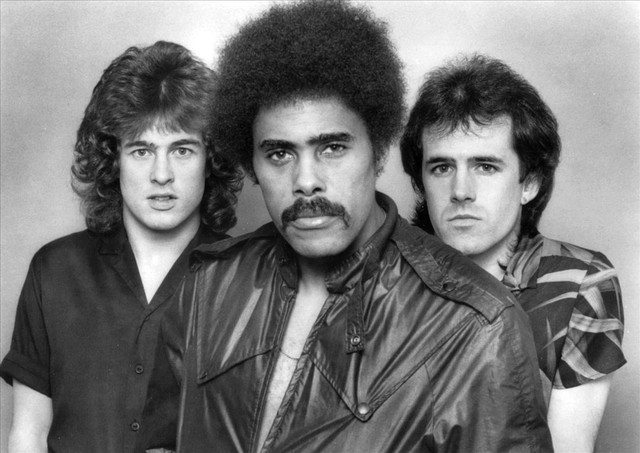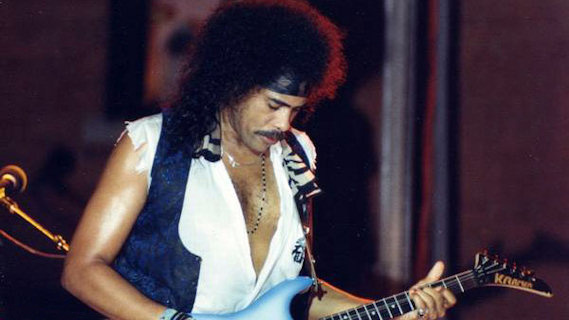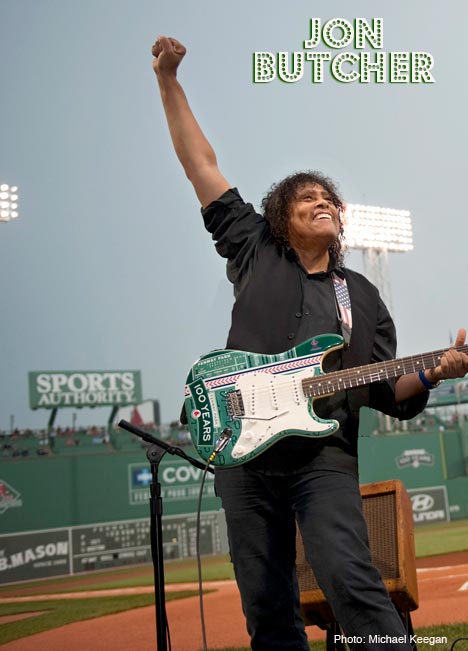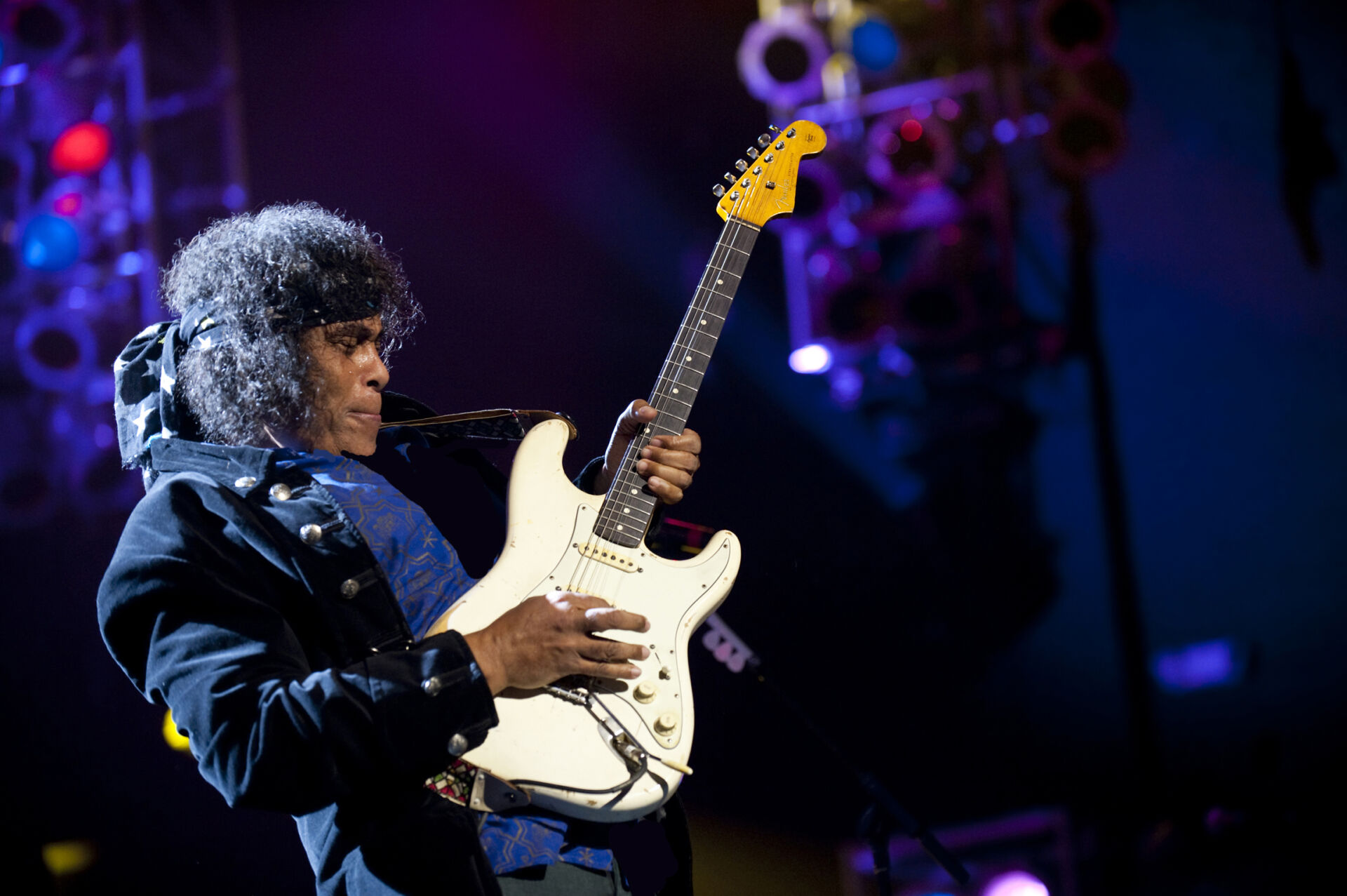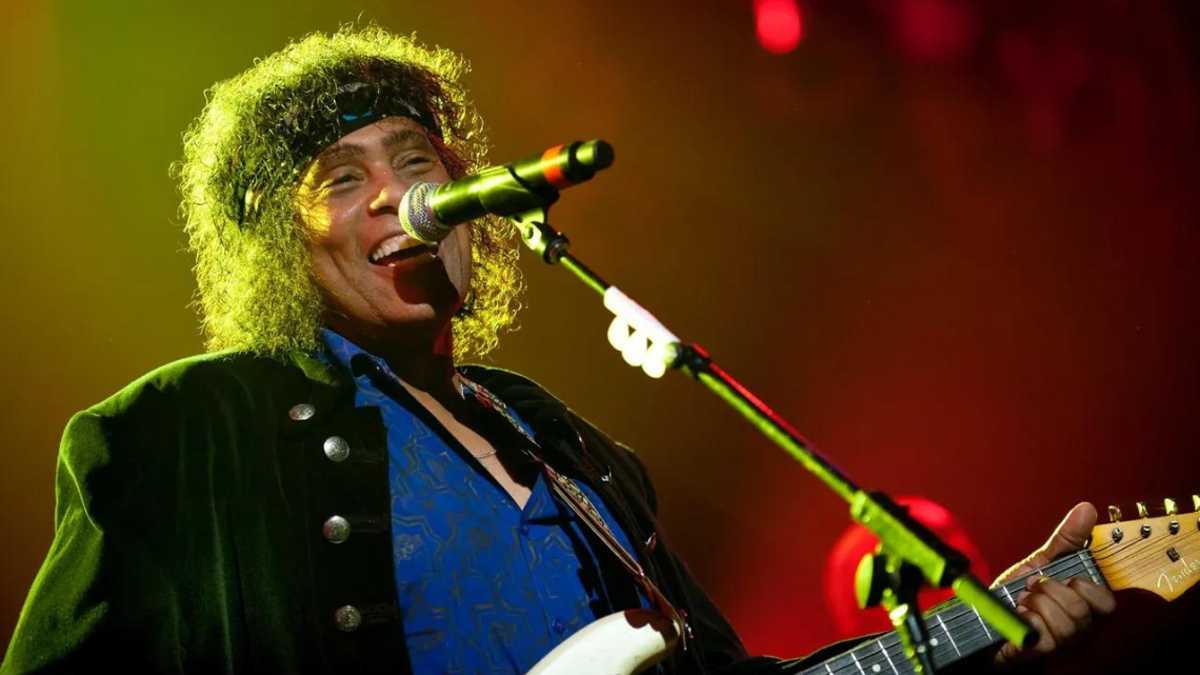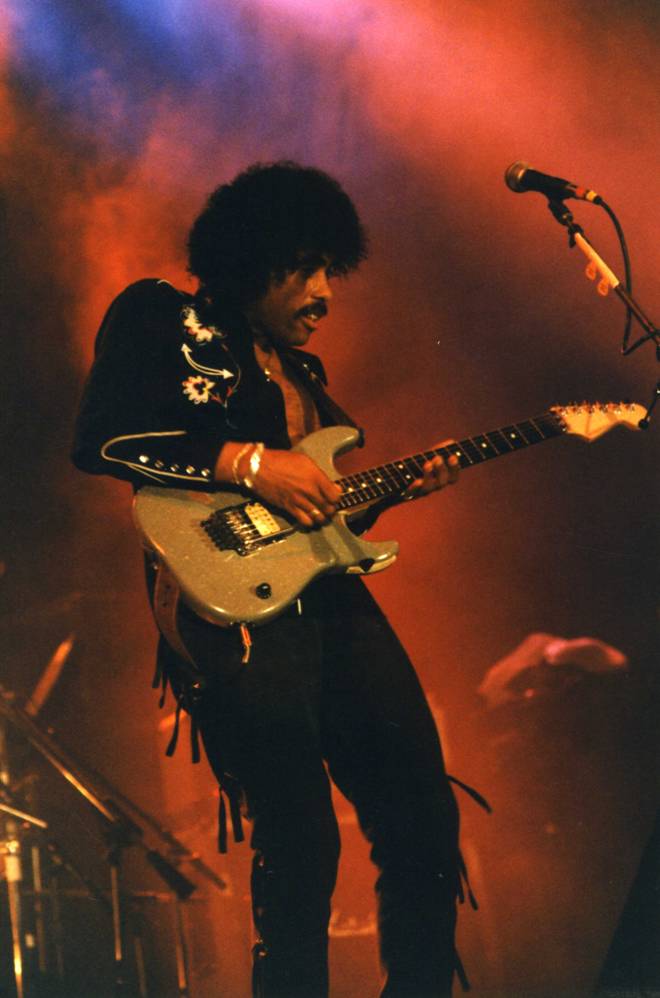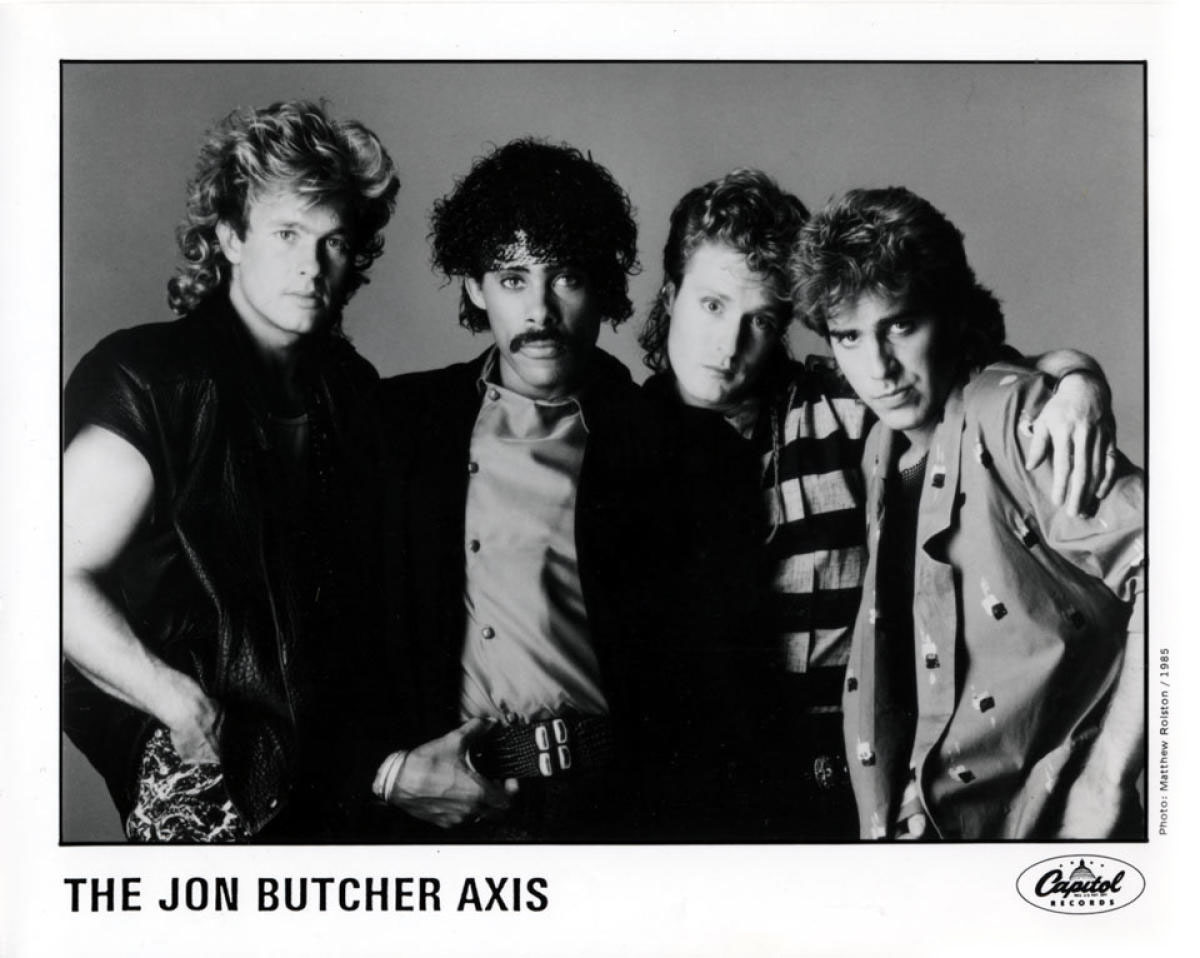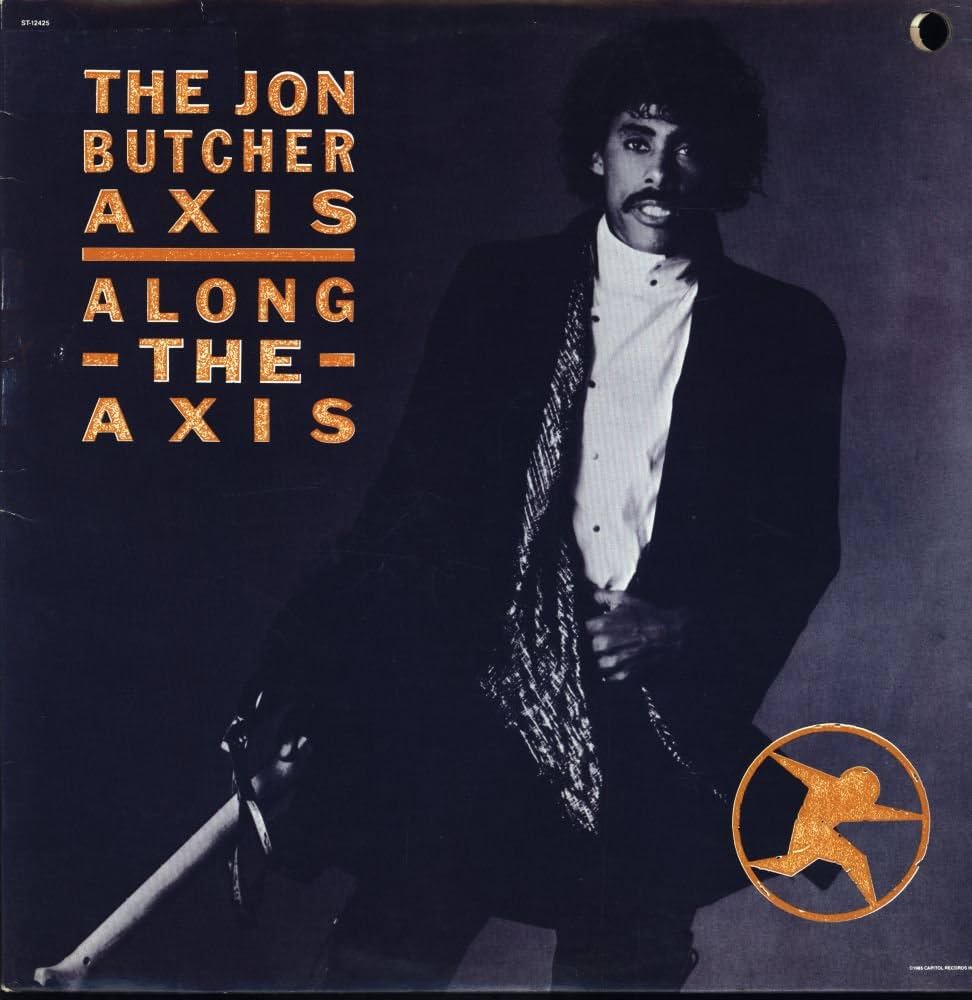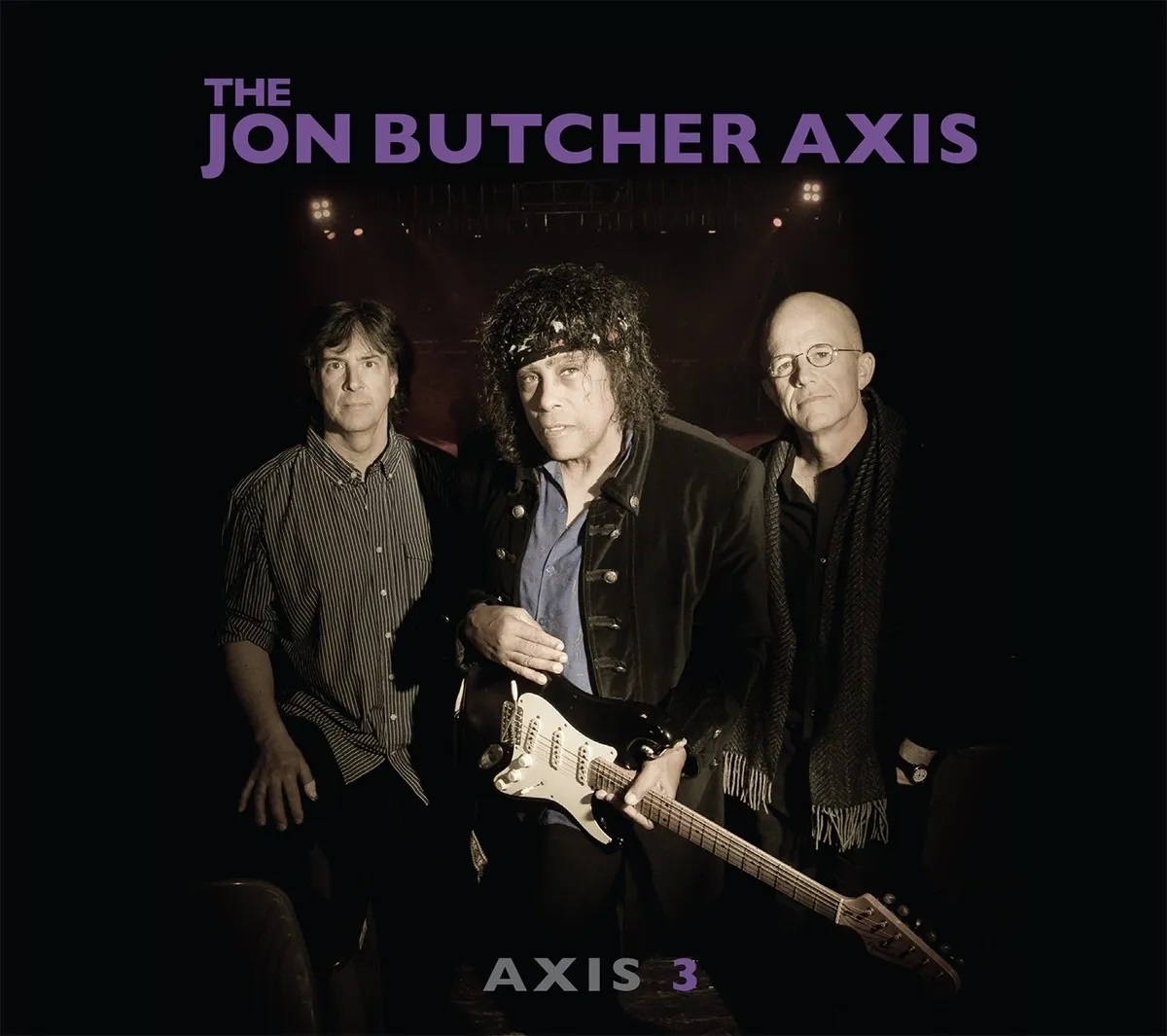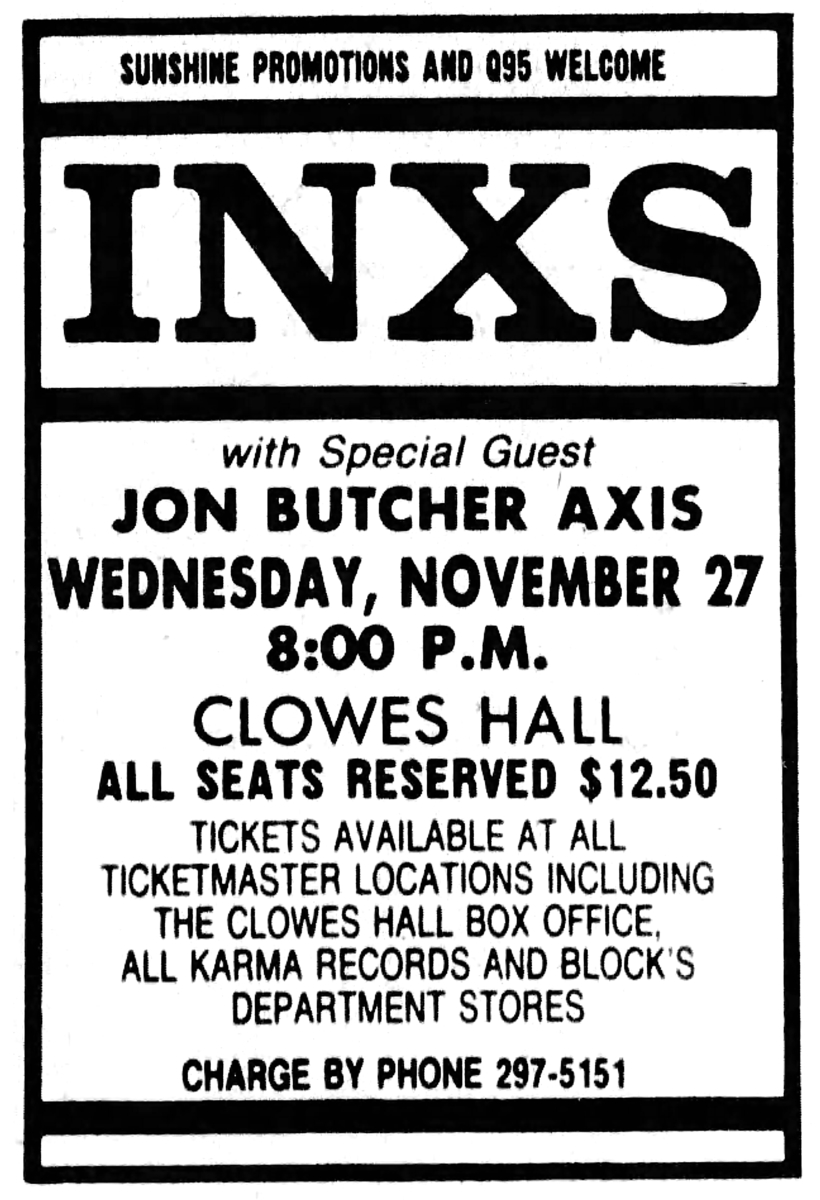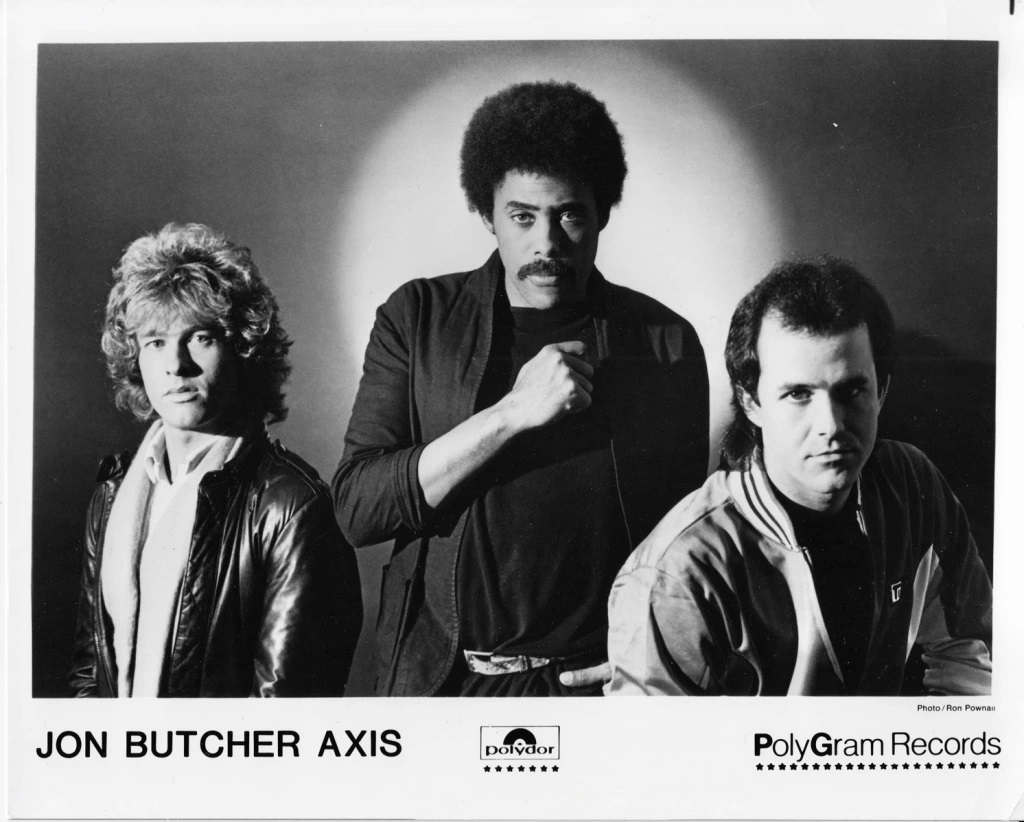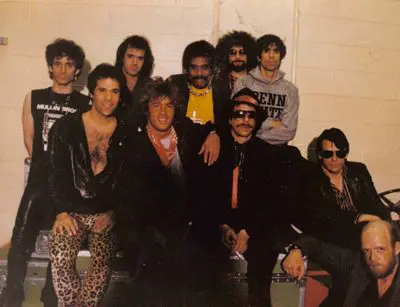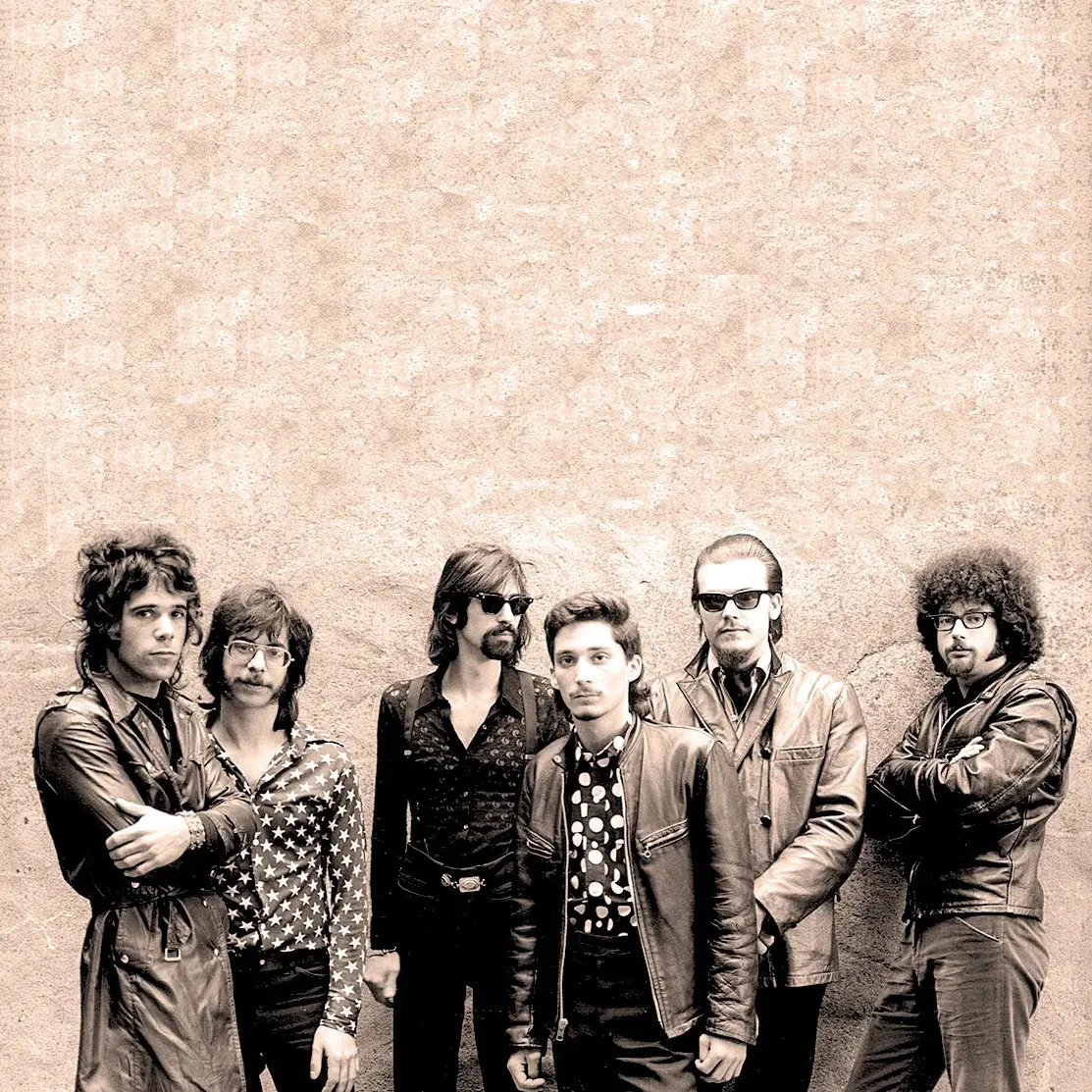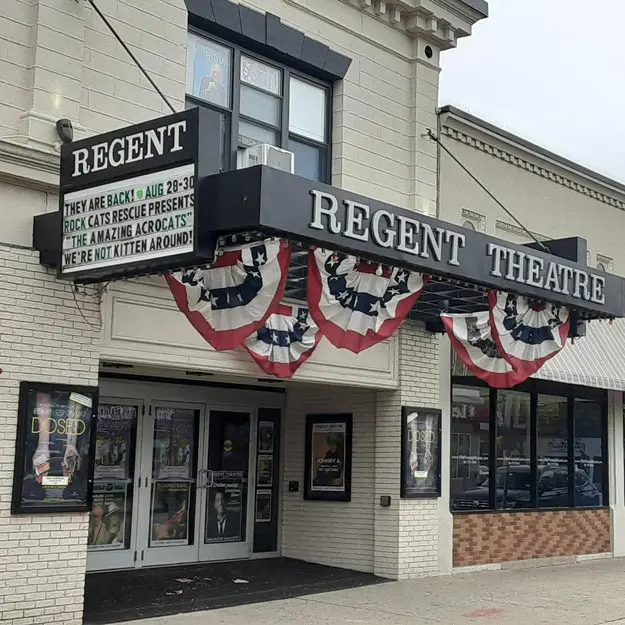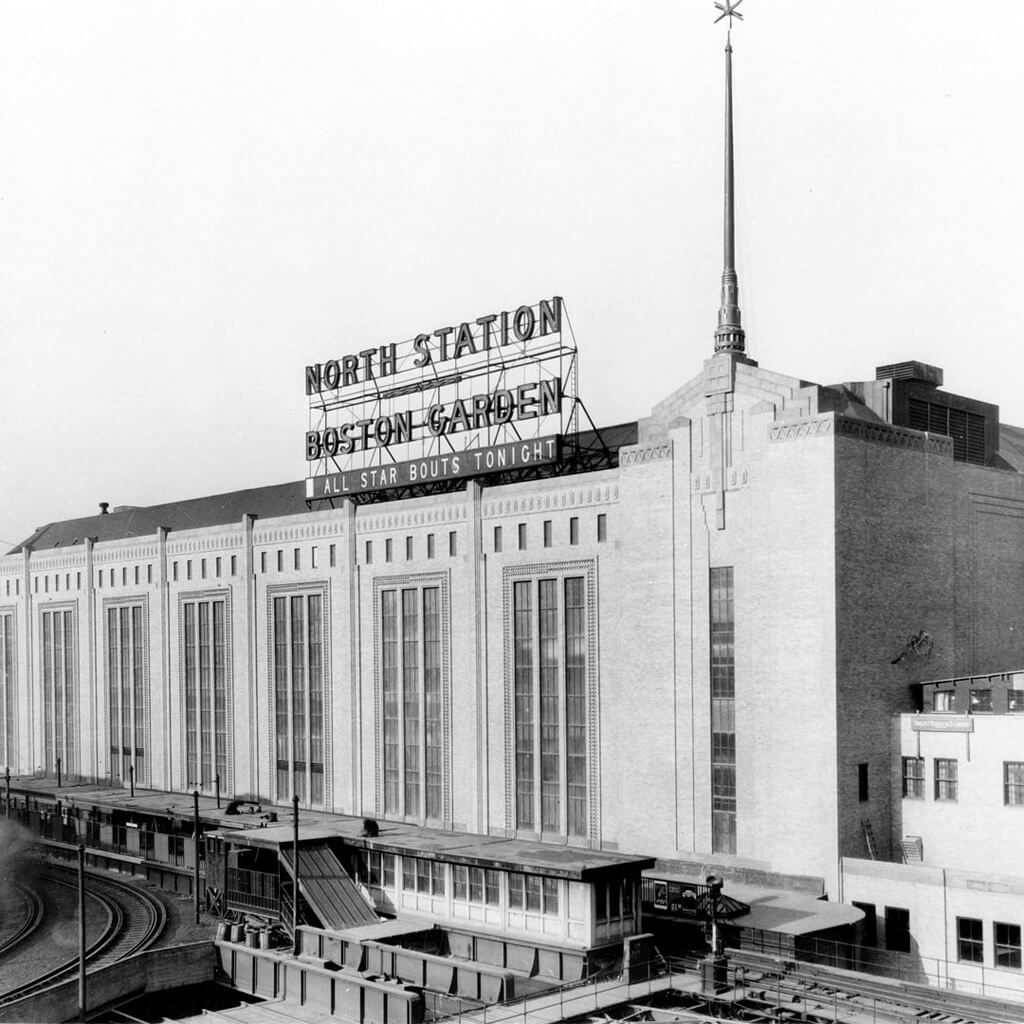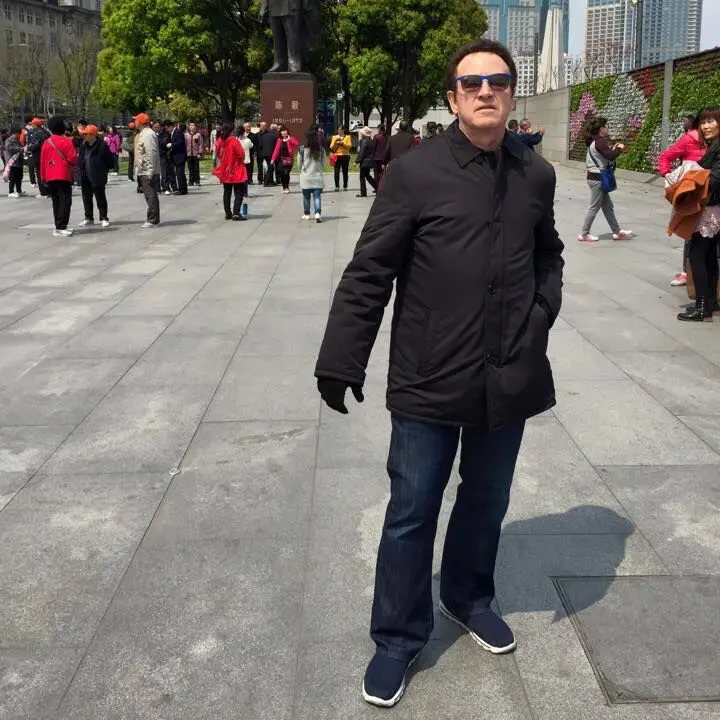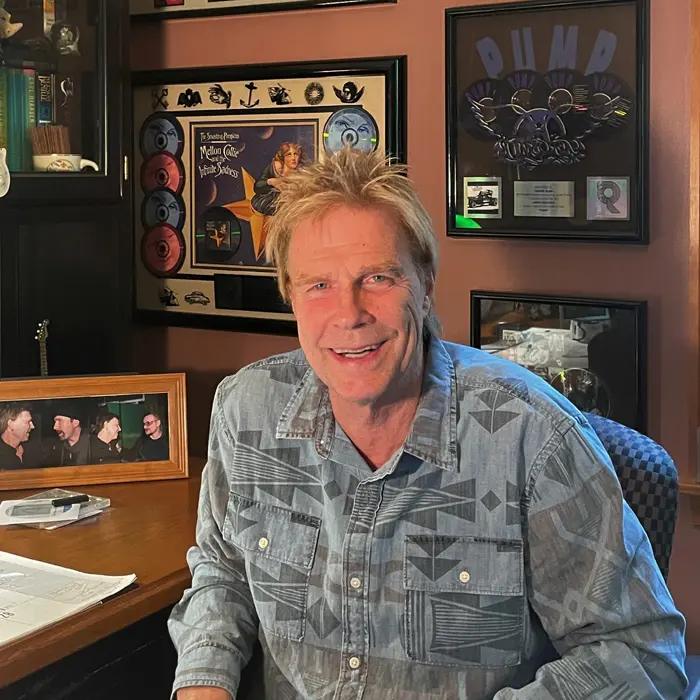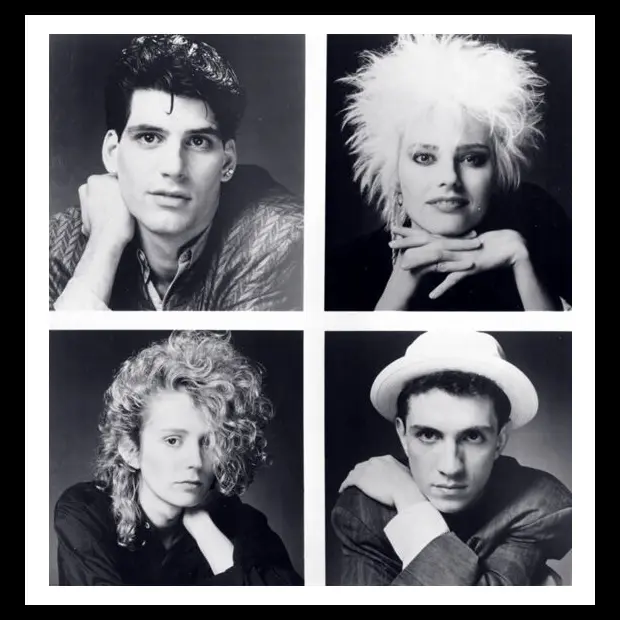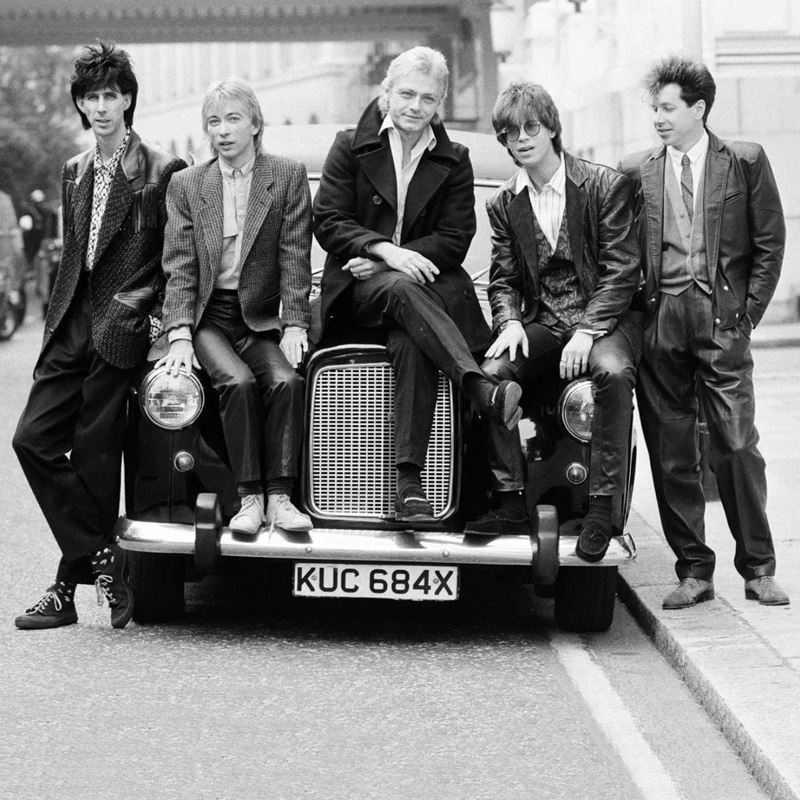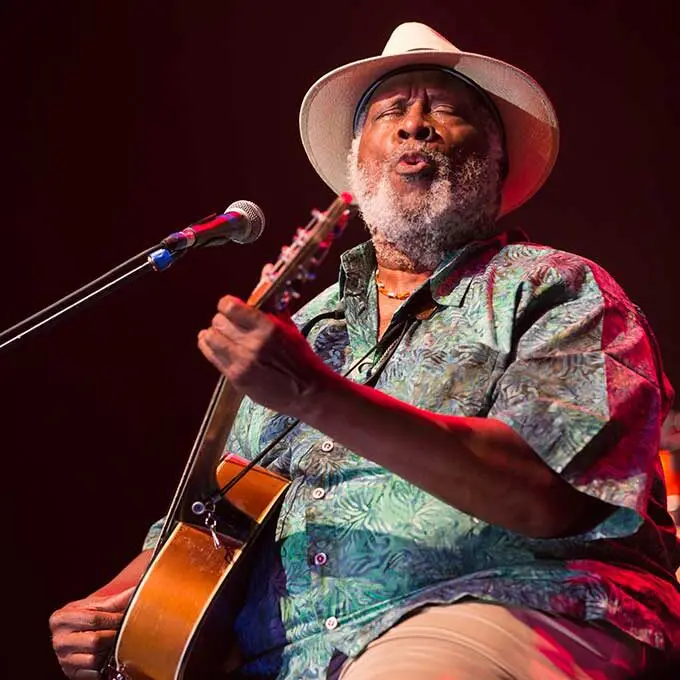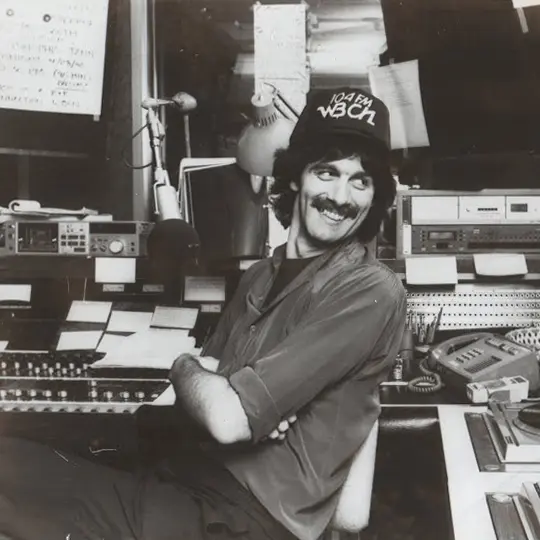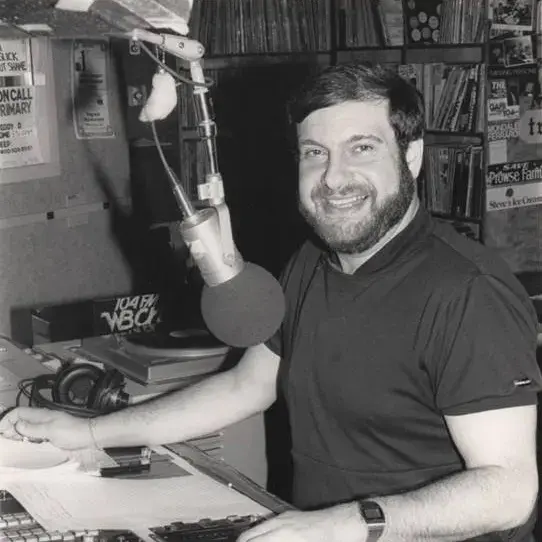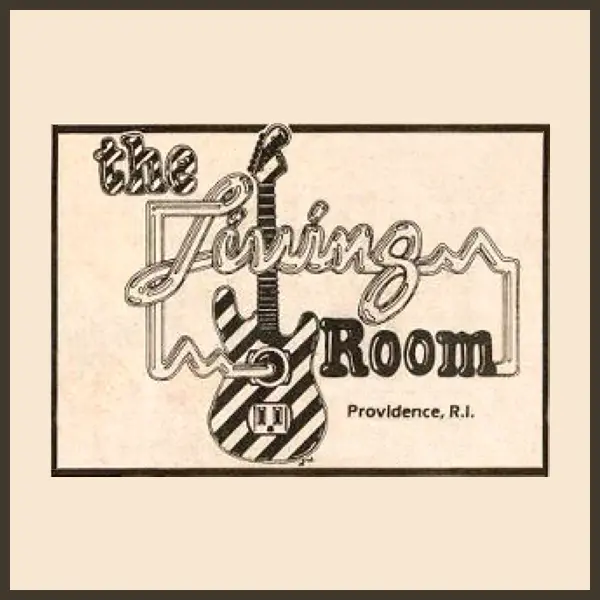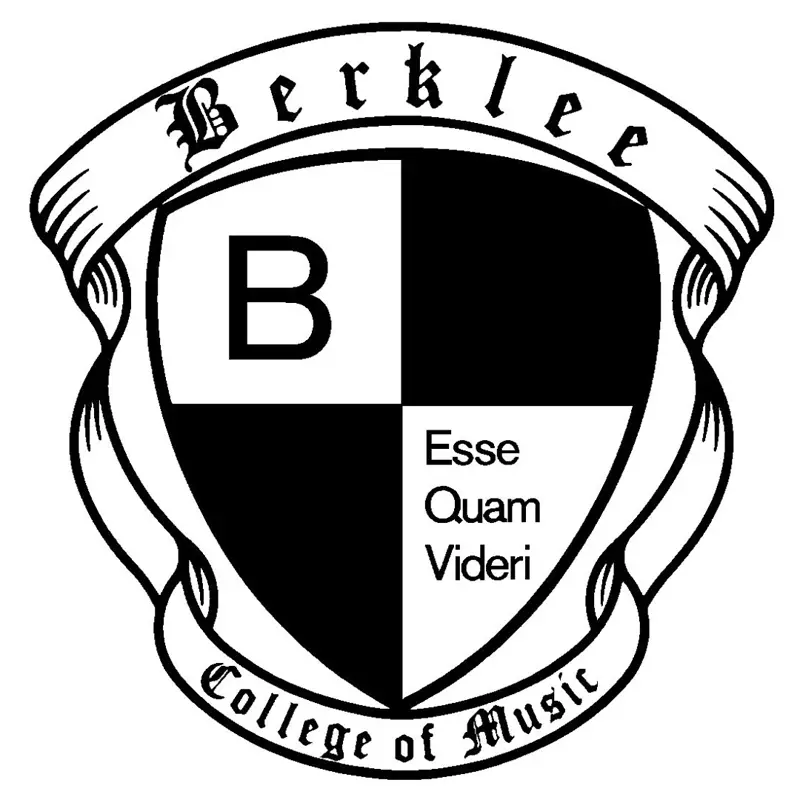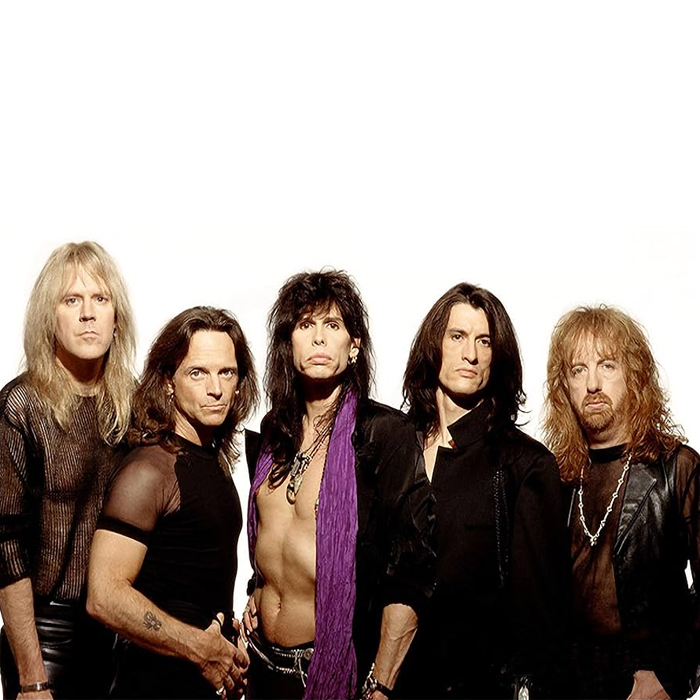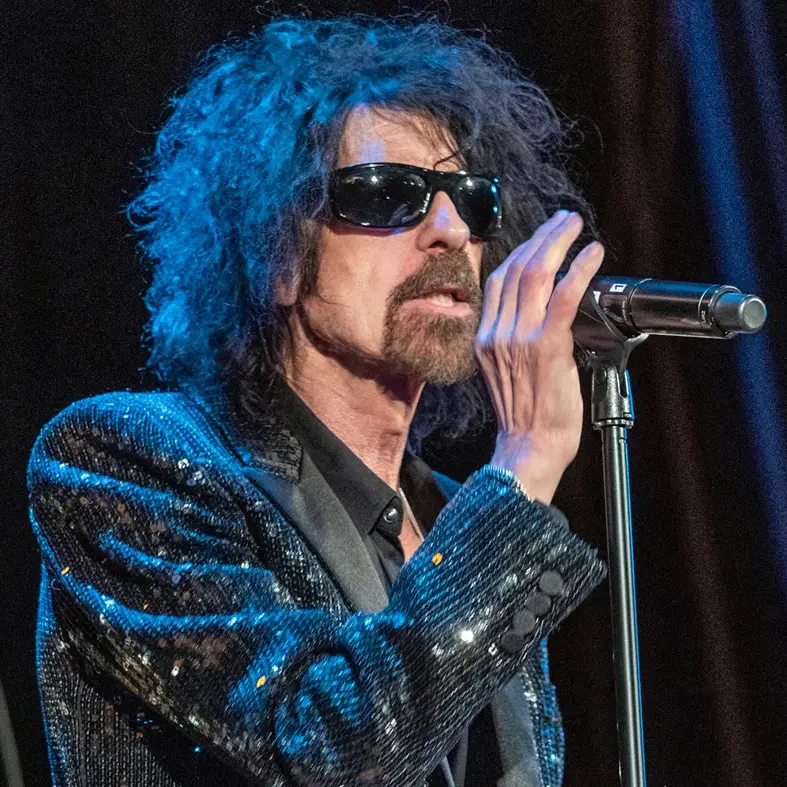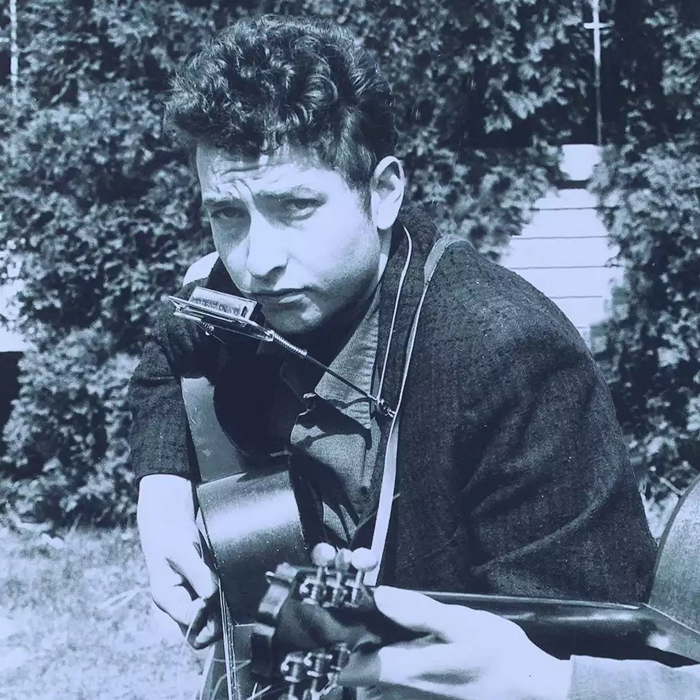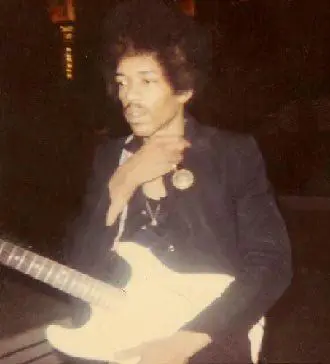Jon Butcher Axis
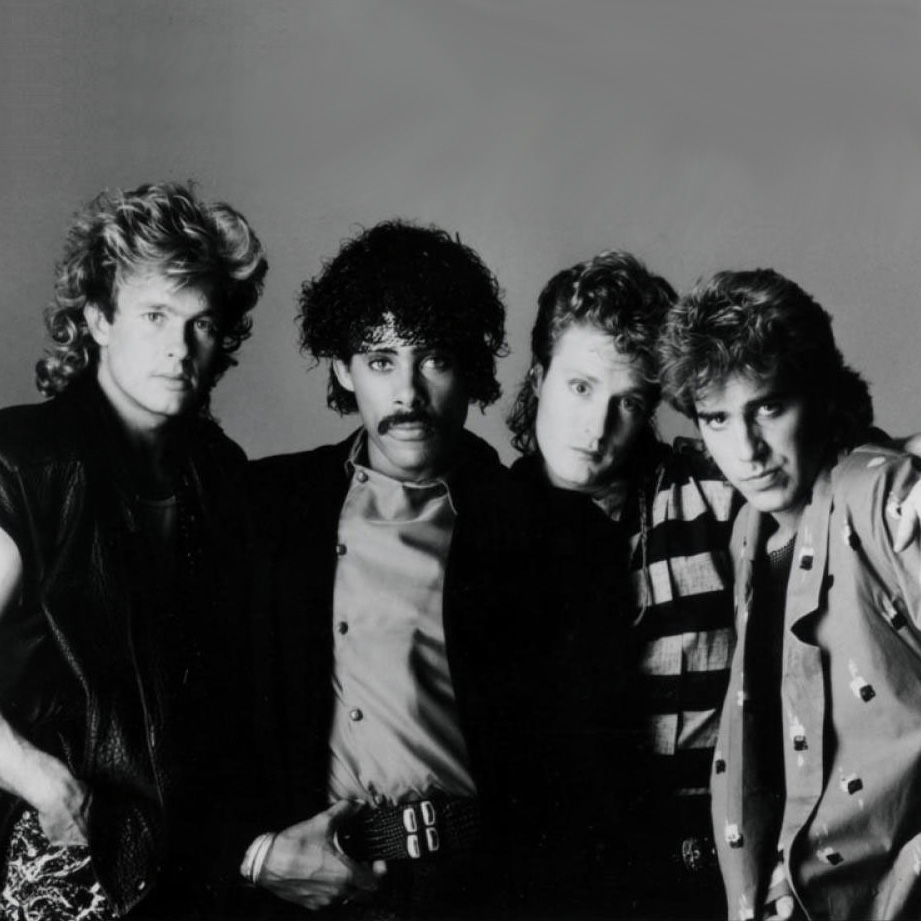
In the mid-1980s, after building an intensely loyal following across New England with ferocious live shows, releasing two critically acclaimed albums and opening nationwide for several of the decade’s arena-filling rock groups, Jon Butcher Axis was standing on the launch pad of rock superstardom. And though they fell just short of that mark in the end – like countless others – the group avoided “where-are-they-now” oblivion – unlike countless others – and still plays several shows per year as a widely respected, ultra-high-octane outfit that’s stayed unflinchingly true to its deep-seated rock ‘n’ roll roots.
Bucking the sweeping trend toward synthesizer-inclusive new wave rock in the ‘80s – personified by Boston’s The Cars and ‘Til Tuesday – JBA’s sound was and remains a searing cocktail of masterful guitar work that combines blues, funk, soul, jazz and Americana with commanding, soul-infused vocals, served up alongside a potent chaser of Butcher’s ever-captivating stage presence. Although the band derived its name from The Jimi Hendrix Experience’s 1967 album Axis: Bold as Love and Butcher has been compared to Hendrix for almost five decades, he considers any such connection to be superficial “if you disregard the fact that I’m Black and play a Stratocaster,” he’s said. He cites his primary influences as Richie Havens, John Lennon, Bob Dylan, Taj Mahal and the Irish singer-songwriter Phil Lynott, a founding member of Thin Lizzy.
Formation
JBA’s roots go back to 1975 when Butcher, who had moved from Pennsylvania to Boston to attend Grahm Junior College, fronted Boston-based rock group Johanna Wilde, which included future JBA drummer Derek Blevins. After four years playing across New England, opening for major acts including The Guess Who and having a local hit with the song “Suzanna,” the band split in 1979. After that, Butcher and Blevins formed JBA as a quartet with bassist Chris Martin and guitarist Sandy Higgins, who left within a year to front Balloon (when Charlie Farren left that band for The Joe Perry Project). JBA remained a power trio until 1985.
Johanna Wild’s incessant touring and devoted fan base provided the new group with instant media attention, particularly on Boston’s hugely influential radio station WBCN, where popular on-air personalities Mark Parenteau, Oedipus and Carter Alan helped JBA become a mainstay on the local music scene. In 1980 and 1981, the group gigged relentlessly, making multiple appearances at The Channel in Boston and The Living Room in Providence and opening for KISS once in Texas.
Polydor signing, Debut album, “Life Takes a Life”
In 1982, ardent JBA fan Peter Wolf was instrumental in arranging for the group to open for The J. Geils Band on their Freeze Frame tour, which included a three-night stand at Boston Garden. That nationwide exposure led to a deal with Polydor Records, on which JBA released its first two LPs, both critically acclaimed.
The group’s self-titled debut dropped in 1983 and reached #91 in the Billboard Pop Albums chart while the single “Life Takes A Life” hit #26 in the Billboard Mainstream Rocks Tracks chart. In a pop-music landmark, the video for that song was only the second one by a Black artist to be aired on MTV; the first was Michael Jackson’s “Don’t Stop ‘Til You Get Enough” (in 1981).
Stare at the Sun, Capitol signing
In 1984, after the group toured with Rush and Def Leppard and appeared on the King Biscuit Flower Hour radio program, Polydor released the band’s sophomore effort, Stare at the Sun, with the single “Don’t Say Goodnight” reaching #24 in the Billboard Modern Rock Tracks chart. The band opened across the US for Scorpions that year and toured alone along the eastern seaboard including shows at The Channel and Karma Club in Boston, Jonathan Swift’s in Cambridge, Uncle Sam’s on Nantasket Beach and The Living Room. At the end of 1984, JBA left Polydor for Capitol Records.
Along the Axis, Grammy nomination, Expanded lineup
In 1985, Capitol released Along the Axis, featuring a dramatically expanded lineup including keyboardist-saxophonist Thom Gimbel – a Berklee College of Music graduate who would tour with Aerosmith in 1989/90 before joining Foreigner in 1992 – percussionist Larry Brown, vocalists Randy Bishop and Ava Cherry and bassist Jimmy Johnson replacing Martin. It was the group’s most commercially successful disc, reaching #66 in the Billboard Pop Albums chart with the single “The Ritual” receiving a Best Rock Instrumental Performance Grammy nomination and “The Sounds of Your Voice,” written by Gimbel, becoming JBA’s only song to hit the Billboard Hot 100 chart, squeaking in at #94. In addition to gigging all around New England and the Midwest on their own, JBA toured North America with INXS that year.
Wishes, Pictures from the Front
In 1987, Capitol released the band’s fourth LP, Wishes, under the Jon Butcher name, not as Jon Butcher Axis. A quartet again – this time featuring Butcher, Blevins, Gimbel and new bassist Rob Jeffries – the album reached #77 in the Billboard Pop Albums chart and the single “Goodbye Saving Grace” hit #7 in the Billboard Modern Rock Tracks chart.
In 1989, the Capitol issued Pictures from the Front under the Jon Butcher name, featuring a completely revamped lineup including Butcher, Gimbel, bassists Jamie Hunting and Jammin’ James Carter, keyboardist Glen Ballard, drummer Ronnie Lee Sage and vocalist Timothy Schmidt (formerly of Poco and The Eagles). Despite the single “Send Me Somebody” reaching #7 in the Billboard Modern Rock Tracks chart, it was the band’s final album.
Disbanding, Electric Factory recording studio, Solo albums
In 1991, JBA broke up officially and Butcher formed Barefoot Servants – known as “the most famous unknown band in the world” – with legendary session bassist Leland Sklar, guitarist Ben Schultz and drummer Ray Brinker. He also founded Electric Factory Recording Studio, which focuses on film, TV and multimedia projects.
In 1995, Shrapnel Records released Butcher’s first solo album, Positively the Blues, and in 1996 Roadrunner Records issued his second, Electric Factory. In 2002, indie label The Orchard released JBA’s An Ocean in Motion – Live in Boston 1984, recorded at The Channel, and in 2004 video distributor CD Baby released Live at the Casbah, which was filmed in 1984 in Manchester, New Hampshire. The DVD includes several unreleased songs, with one critic calling it “a dynamic show that eclipses some of the singer’s studio recordings.”
Remasters, Reissues, Recent New England appearances
In 2018, Escape Music Group released digital remasters of JBA’s first two LPs and the Rock Candy label reissued Along The Axis and Wishes. Over the past several years, Butcher has reassembled JBA occasionally and – still a local favorite more than 40 years after first forming – the group has appeared at Massachusetts venues including The Cabot in Beverly, the Regent Theatre in Arlington, The Center for the Arts in Natick and the Gloucester Stage Company and in New Hampshire at the Tupelo Music Hall in Derry and the Flying Monkey in Plymouth.
(by D.S. Monahan)

